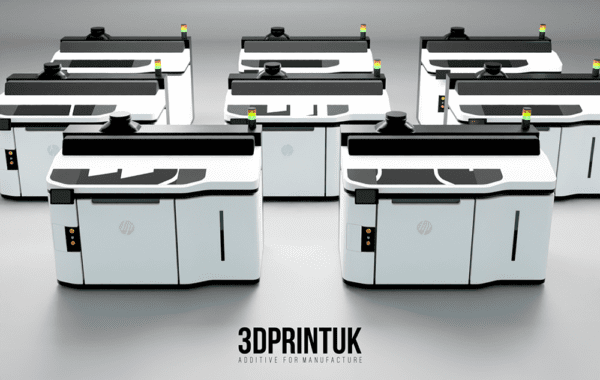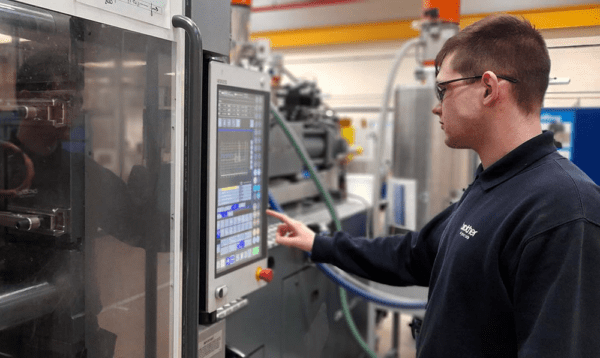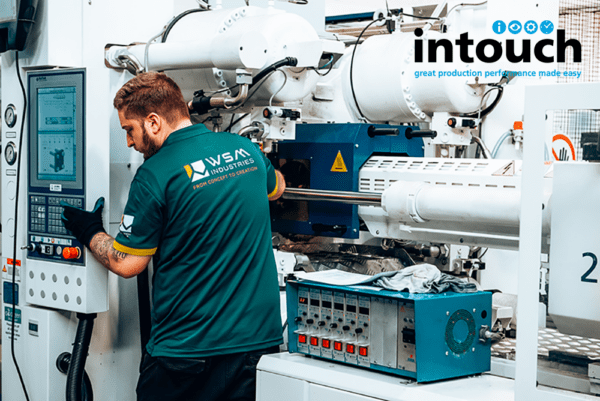
Shop Floor Productivity Investments Drive Growth for Manufacturers
Research from IQMS & Dassault Systemes highlights shop floor productivity improvement as key growth strategy, with 76% of respondents saying it is their key growth strategy for 2019.
You can download a copy of the report from Proximity, a certified IQMS reseller and provider of IQMS implementation services across the UK, Ireland and Europe. Download now.
Investment in machinery upgrades, purchase of ‘next generation machines’ and real-time shop floor control through MES systems (manufacturing execution software) is helping top-performing manufacturers experience year-on-year in excess of 10% according to research conducted by IQMS and Dassault Systemes.
Comprehensive surveys and in-depth interviews with 150 North American manufacturers provide a guide to the most effective investment strategies, the greatest barriers to growth and the areas of most and least manufacturing technology investment.
Manufacturers prioritising shop floor productivity above all other things
Unsurprisingly, the majority of manufacturers surveyed (76%) are working on growth strategies to improve productivity on the shop floor, almost 1.5 times more important than the next strategy on the list (with 44%) were marketing improvements to drive more leads or growing revenues through partnerships (31%). Amongst those manufacturers reporting revenue growth of 10% or more, investment was focused on robotics to offset the issues of a shortage in skilled operatives, combined with increased spend on their Quality Management Systems in a bid to improve inconsistent supplier quality compared to their competitors.
“All manufacturers interviewed are investing to increase shop floor productivity and operational improvements so they can offer short-notice production runs to their customers, improve product quality, and consistently meet on-time delivery dates.”
Machinery upgrades and smart, connected machines form greatest investment
Of those businesses surveyed, 2018 represented a record year for revenue. As a result, the majority of manufacturers are looking to reinvest profits in their shop floors to drive greater productivity. Production and process monitoring software combined with spend in existing machinery upgrades represents the greatest investment priority for 41% of manufacturers. A further 41% said that their priority would be investing in new smart, connected machinery that can interact directly with their production software or robotics.
38% of manufacturers are also investing in real-time shop floor production monitoring through an MES system, while a further 19% continue the theme of connectivity with investment in systems integration. Robotics feature in 29% of manufacturers investment plans as they look to mitigate the risks associated with a shortage of skilled operators across the industry.
Real-time production control & quality management driving growth
In an increasingly crowded marketplace, delivering consistent and excellent customer service can be a vitally important differentiator. Technology is playing a key role in delighting customers. Real-time, shop floor production monitoring software (MES systems) is the leading technology category expected to be adopted in the next 12-months (38%). Investment in MES systems is expected to help manufacturers to:
“reduce scrap rates, increase yield rates by machine and improve on-time delivery performance. For plastics manufacturers, real-time monitoring is helping to build the data, insight and knowledge foundation they need to transition to one or more lights-out manufacturing shifts”.
Investment in quality management systems is the next most popular category for expected investment across all manufacturing sectors. However, when we look at specific sectors, there are some that investment is expected to be significantly above the 33% average. Aerospace & Defence is the highest (73%), with plastics next at 68% and fabricated metals at 59%.
CAD software is an integral part of the production process
Overall, 58% of manufacturers surveyed are using computer-aided design software of some kind within their production process. 2D CAD, for instance, is being used as part of their design and production workflows, while 3D design is being used for advanced plastics, metallurgy and moulding applications. The vast majority of that percentage are using Dassault Systemes SOLIDWORKS (60%). Other applications used included AutoCAD (39%) and Inventor (14%).
“One of the fascinating findings from the study is how pervasive the 3D CAD features of SOLIDWORKS are serving as a platform for advanced product configuration and Configure, Price and Quote (CPQ) visualisation Applications.”
What sets high growth manufacturers apart from the others
In a nutshell, they define shop floor productivity in terms of revenue growth first, cost savings second. They are more likely to look at how they can use their software systems to drive product quality, scheduling accuracy and ensure customer expectations are met.
– Manufacturers growing 10% a year or faster are capable of quickly converting shop floor productivity into greater order accuracy including perfect order performance, strengthening relationships with customers
– Integrating real-time monitoring, Quality Management and MES systems to gain greater accuracy, scale, and speed versus their competitors
– Selling short notice production runs, higher product quality levels, higher yields and greater visibility into production wins is a key strategy which manufacturers growing faster than their peers rely on to win more business
– Leaders of high-growth manufacturers reinforce a culture of continuous improvement based on measurable results with heavy reliance on analytics.
Proximity
0113 393 3360
Website
Email






